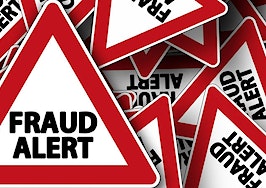Lew Sichelman is a seasoned writer with 50 years of covering the housing and mortgage markets under his belt. His biweekly Inman column publishes on Tuesdays.
The Financial Crimes Enforcement Network (FinCEN) has expanded its investigation into real estate money laundering, specifically whether foreign entities are using shell companies to purchase homes and condominium apartments in an effort to hide money they are sneaking out of their home countries and into the United States.
Earlier this month, FinCEN, a division of the Treasury Department, issued revised Geographic Targeting Orders (GTOs) that require title insurance companies to identify the persons behind shell companies used in all-cash purchases of residential real estate.
The purchase amount threshold, which previously varied by city, is now set at $300,000 for each covered metropolitan area. FinCEN is requiring that covered purchases using virtual currencies also be reported.
The revised orders cover certain counties within a dozen major metropolitan areas: Boston, Chicago, Dallas-Fort Worth, Honolulu, Las Vegas, Los Angeles, Miami, New York City, San Antonio, San Diego, San Francisco and Seattle. All are prime destinations for foreigners.
The FinCEN investigation has been ongoing since January 2016 and has been expanded several times.
Previous GTOs have provided “valuable data on the purchase of residential real estate by persons implicated, or allegedly involved, in various illicit enterprises including foreign corruption, organized crime, fraud, narcotics trafficking and other violations,” the agency said in a statement.
“Reissuing the GTOs will further assist in tracking illicit funds and other criminal or illicit activity, as well as inform FinCEN’s future regulatory efforts in this sector.”
The initial probe was centered on shell companies using all-cash to purchase property in Miami-Dade County, Florida, and Manhattan in New York City because FinCEN was concerned that “illicit money” was the basis for those transactions.
It discovered that more than 1 in 4 of the deals covered in the inquiry involved a “beneficial owner” who also was the subject of a “suspicious activity report.” Lenders are required to file SARs with FinCEN when they suspect possible criminal activity.
That led to the first expansion of the inquiry to include all of New York City, Los Angeles, San Francisco and several other areas. The investigation was later expanded again to include wire transfers.
Throughout the probe, FinCEN focused on luxury real estate, setting the reporting thresholds for title companies at $500,000 or above. In Manhattan, for example, title companies were required to identify the actual person behind shell companies used to pay all cash on deals of only $3 million or more.
Now, title companies will have to report on the actual buyer behind any shell company on cash sales of just $300,000 or more, and they must do so until at least May 15, 2019. Deals using cryptocurrency also are covered.
Title companies or their agents must identify every so-called “beneficial owner,” which is defined as an individual who owns a 25 percent or more of the equity interests of the purchasing shell company. They must obtain and record a copy of the beneficial owner’s driver’s licenses, passport or other identifying documentation.
FinCEN said in its announcement that title insurance companies and the American Land Title Association have cooperated and assisted in the effort to protect the real estate markets from abuse by illicit actors.
Specifically, these jurisdictions are covered by the new orders: Bexar, Tarrant and Dallas Counties, Texas; Miami-Dade, Broward and Palm Beach Counties, Florida; the New York City Boroughs of Brooklyn, Queens, the Bronx, Staten Island and Manhattan; San Diego, Los Angeles, San Francisco, Santa Clara and San Mateo Counties, California; Honolulu, Hawaii; Cook County, Illinois; Clark County, Nevada; King County, Washington; and Suffolk and Middlesex Counties, Massachusetts.
Lew Sichelman’s weekly column, “The Housing Scene,” is syndicated to newspapers throughout the country.













